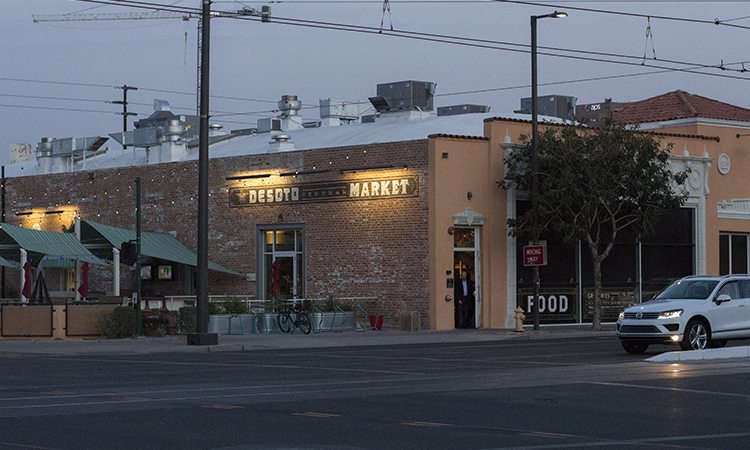For the last few years, food halls have spread across America, with the market expected to triple in size by 2020, according to a report by Cushman & Wakefield. But aren’t they just glorified food courts? Not according to Brent Mallonee, senior director at Cushman & Wakefield.
“Food halls aren’t a transition from a food court,” he says. “Yes, there are multiple vendors under one roof, but food halls emphasize connectivity and interaction with the customer.”
Food halls are meant to celebrate food, bringing together a multitude of vendors—from celebrity chefs to local artisans—all while focusing on quality and authenticity.
As food halls proliferate across the nation, their definition remains fluid, but their benefits to restaurants and consumers are clear.
“They allow restaurants to find an incubator space that doesn’t take the same level of capital and time to get up and running. They can test concepts out,” Mallonee explains.
Furthermore, they drive foot traffic by creating a communal experience, bringing together not only customers, but vendors as well.
“Restaurants like to locate together—same as malls or car dealerships. But food halls create synergy, as well as safety in numbers.”
This is especially true for businesses just starting out. As Mallonee explains, food halls are a space to test menus before expanding.
“From an incubator perspective, you start at the food hall, grow your business, and eventually become a free-standing, self-sustained company. And then someone else will fill in your spot in the food hall with their new concept,” he says.
In fact, Phoenix already has one food hall: Desoto Central Market on Central Ave.
Shawn Connelly, managing partner of Desoto, has worked in the restaurant industry his whole life. Inspired by childhood trips to Detroit’s Eastern Market and a study abroad in Spain with its lively boquerias, he and his partners launched their food hall in 2015.
“Downtown Phoenix was primed for a resurgence,” Connelly explains. “Land was cheap, and millennials and baby boomers were returning to urban centers. We wanted to create a central hub for people to eat and hang out.”
And Desoto has already proven the incubator theory. Radish was a Desoto vendor that sold salads and juices but has since gone predominantly wholesale and has a full distribution with Shamrock Foods. Connelly says that’s how it’s meant to be.
“Food halls are meant to be changing. The vendors have two or three-year leases to keep the vibe fresh and intriguing for the public,” Connelly says.
In line with this idea, Desoto has a constantly changing array of events, from salsa dancing to drag bingo. For craft beer fans, they have a taproom that changes vendors every three months, with Founders Brewing Company from Michigan as the next incoming brand after Tempe-based Huss Brewing Company is finished occupying the space.
While Desoto is the only recognized food hall in Phoenix so far, Mallonee says Phoenix could expect more in the future.
“Phoenix has been praised for the evolution of our culinary scene. Restaurants and concepts have emerged in Phoenix and gone on to expand nationally,” Mallonee says. “Based on our culinary success as a market, we’re ripe to see more food halls.”
Food halls require urbanism and walkability to drive the volume of foot traffic needed to offset high up-front costs. In Phoenix, there are five or six urban nodes with the population density to support such a project.
If those areas do become home to new food halls, Phoenix residents can expect fascinating new culinary delights in their future.
“If the trend takes off here, it will draw more culinary innovation as people use the food hall as an incubator space to test different ideas,” says Mallonee. “It will propel our culinary scene even further with new concepts and fusions.”
But above all, says Mallonee, food halls represent the strength of a market. While Phoenix doesn’t have anything on the scale of Eately or large projects in places like New York or Los Angeles, securing more food halls will prove Phoenix has the size, strength, and viability to support new and innovative developments.
“Showing that your market is mature enough from a density and activation standpoint to support a food hall—it’s a badge of honor,” Mallonee says.




